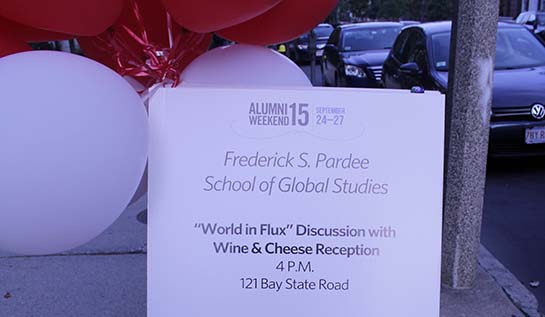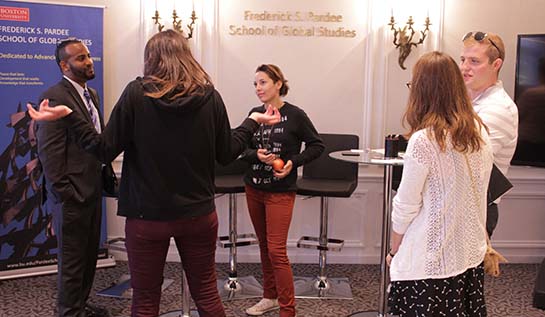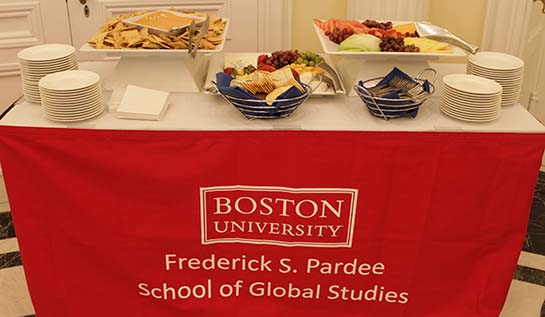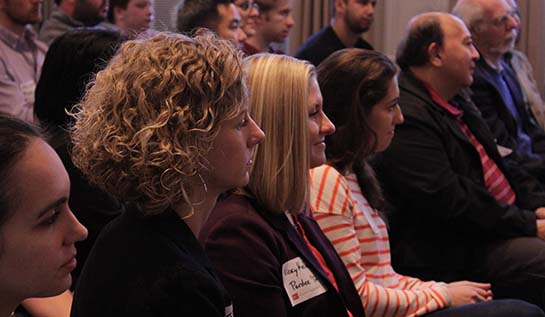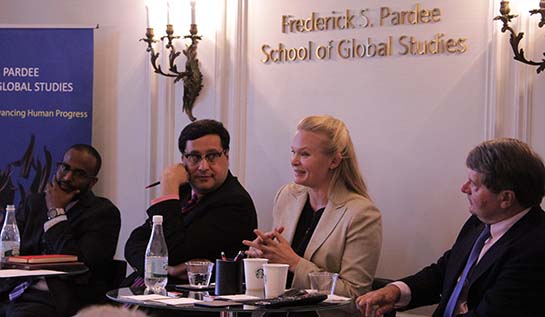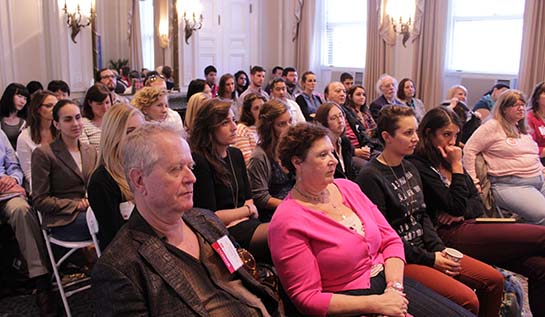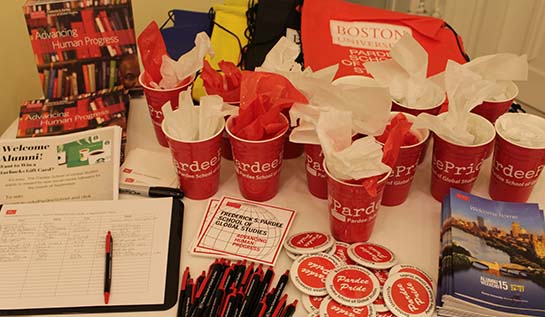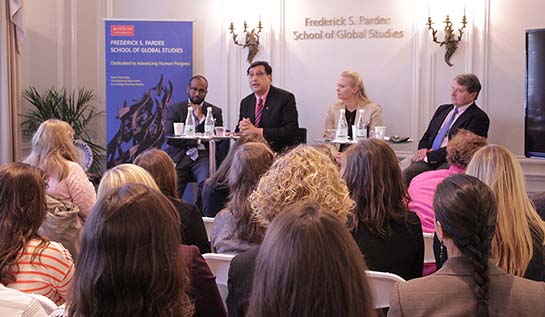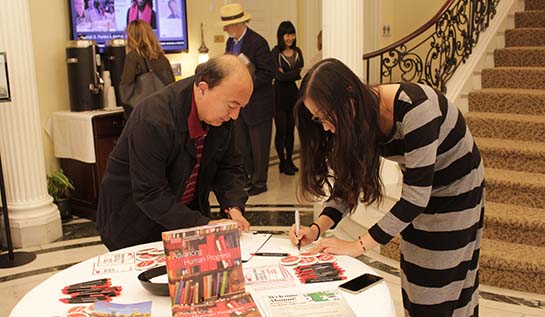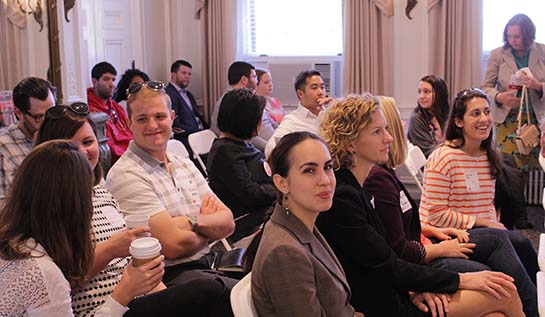Alumni Weekend at Pardee
The Frederick S. Pardee School of Global Studies at Boston University was proud to participate in Alumni Weekend 2015, welcoming current students, alumni, and friends of the School to a roster of events held on September 26.
Alumni Weekend events at the Pardee School kicked off with “The World in Flux,” a panel discussion, featuring Pardee School faculty, on global shifts in an increasingly complex world with panelists Ambassador Paul Hare, Prof. Kaija Schilde and Prof. Michael Woldemariam. The panel was moderated by Prof. Adil Najam, Dean of the Pardee School.
“I spoke on why Cuba, even with the rapprochement with the U. S., remains a fascinating study and a real ‘foreign’ country. It has many unanswered questions and provides an enormous amount of raw material for analysis of social, economic and political issues,” said Paul Hare. “One of many global challenges confronting states, business, non-profits and academics is to find ways to improve diplomacy’s performance because it is central to how build consensus and implement agreements in an increasingly chaotic but interconnected world.”
Schilde’s remarks were focused on the impact of nonstate actors in international affairs, using the European Union as an example. She questioned much of the established ‘conventional wisdom’ on the EU and also pointed out that the new realities – some created by its own success – are now making it a more unwieldy and difficult non-state institution. In particular, she also spoke about the pressures coming on the EU from events in Greece and from the large number of Syrian refugees now at its borders.
Woldemariam anchored his remarks around the idea of ‘Africa Rising’ as a continent. He pointed out the many ways in which Africa is changing, including in its struggles with democracy. Although there are still many challenges, the continent is now emerging as a community. This community is, accoording to Woldemariam, best exemplified in the African Union. He pointed out that one of the ways in which the African Union is changing Africa is that it has begun to take much more responsibility to dealing with crises on the continent as they emerge.
Dean Najam anchored his remarks in what he considered to the two of the biggest global threats. The first, he said, was water; and the second, ISIS and their use of inhuman violence. He suggested that the world is not very well prepared to deal with either.
In concluding the panel discussion, Dean Adil Najam drew this common threat from the various panelists’ remarks: “The lesson of this panel is that it is not as much that everything in the world is failing, as that many of the old, ordered models of understanding the world are rapidly changing. The world is now a much less ordered place. The more our assumptions about how the world is supposed to work are challenged by events, the more uncomfortable we become.”
Following “The World In Flux” was a meet and greet reception for current Pardee School graduate students and alumni, which provided an opportunity for interaction across a wide variety of fields. Attendees learned the benefits of a Pardee education in the work force, as well as creating valuable professional connections.
This year’s Alumni Weekend celebrated 100 years of Nickerson Field, which was the home of the Boston Braves baseball team until BU took ownership in 1954. As Braves Field, it hosted such legendary players as Babe Ruth, Lou Gehrig, Jimmie Foxx, Leo Durocher, and Joe DiMaggio, as well as Boston’s first African American major leaguer Sam “Jet” Jethroe.
